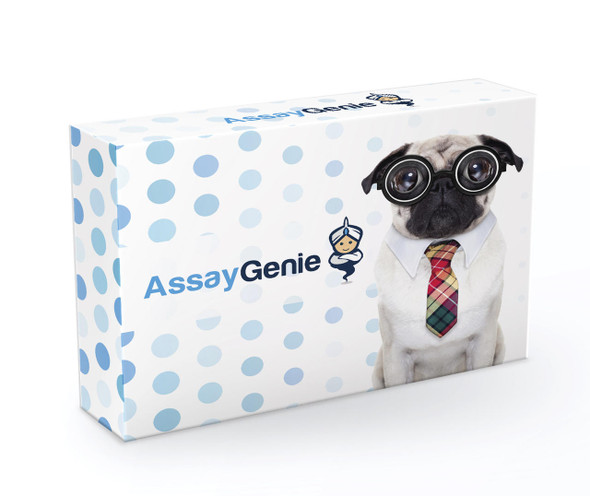Description
Durvalumab (Imfinzi®) Free drug ELISA Kit
Solid phase enzyme-linked immunosorbent assay (ELISA) based on the sandwich principle. Standards and samples (serum or plasma) are incubated in the microtiter plate coated with the reactant for durvalumab . After incubation, the wells are washed. Then, horse radish peroxidase (HRP) conjugated probe is added and binds to durvalumab captured by the reactant on the surface of the wells. Following incubation wells are washed and the bound enzymatic activity is detected by addition of tetramethylbenzidine (TMB) chromogen substrate. Finally, the reaction is terminated with an acidic stop solution. The colour developed is proportional to the amount of durvalumab in the sample or standard. Results of samples can be determined directly using the standard curve.
Durvalumab (Imfinzi®) Free drug ELISA Product Information
| Information | Description |
Application | Free Drug |
Required Volume | 10 µL |
Total Time | 70 Minutes |
Sample Type | Serum, Plasma |
Number of Assays | 96 |
Detection Limit | 30 ng/mL |
Spike Recovery | 85-115% |
Shelf Life (year) | 1 |
Alternative Names | - |
About Durvalumab (Imfinzi®)
Immune checkpoint inhibitors targeting programmed death 1 (PD-1) and programmed death ligand 1 (PD-L1) have shown activity in the treatment of numerous cancers, including advanced NSCLC (non-small cell lung cancer). Durvalumab is a selective, high-affinity, engineered, human immunoglobulin G1 kappa (IgG1κ) monoclonal antibody that blocks PD-L1 binding to PD-1 and CD80, allowing T cells to recognize and kill tumor cells. Preclinical evidence suggests that chemoradiotherapy may up-regulate PD-L1 expression in tumor cells and it is hypothesized that PD-L1 blockade may help restore systemic and long-term immune response after chemoradiotherapy.
Produced by recombinant DNA technology in Chinese Hamster Ovary (CHO) cell suspension culture, durvalumab is a programmed death-ligand 1 (PD-L1) blocking antibody that works to promote normal immune responses that attack tumour cells. Durvalumab is marketed under the brand name Imfinzi, which is available for intravenous injections. It was granted accelerated approval by the FDA in May 2017 for the treatment of selected patients with locally advanced or metastatic urothelial carcinoma. In September 2018, durvalumab was approved by the EMA for the treatment of adult patients with locally advanced, unresectable non-small cell lung cancer (NSCLC), only if PD-L1 is expressed in ≥ 1% of tumour cells and there was no observable disease progression following platinum-based chemoradiation therapy 3 Therapeutic drug monitoring (TDM) is the clinical practice of measuring specific drugs at designated intervals to maintain a constant concentration in a patient's bloodstream, thereby optimizing individual dosage regimens. The indications for drug monitoring include efficacy, compliance, drug-drug interactions, toxicity avoidance, and therapy cessation monitoring. Additionally, TDM can help to identify problems with medication compliance among noncompliant patient cases.
Biologic medicinal products (biologics) have transformed treatment landscapes worldwide for patients with haematological or solid malignancies with the 21st century. Today, as data exclusivity periods of first wave biologics approach expiration/have expired, several biosimilar products (i.e. biologics that are considered to be similar in terms of quality, safety and efficacy to an approved ‘reference’ biologic) are being developed or have already been approved for human use.
Like all biologics, biosimilars are structurally complex proteins that are typically manufactured using genetically engineered animal, bacterial or plant cell culture systems. As a consequence of this molecular complexity and the proprietary nature of the manufacturing process, which will inevitably result in the use of different host cell lines and expression systems as well as related differences in manufacturing conditions, it is not possible to manufacture exact copies of a reference biologic.
When administered to patients, all therapeutic proteins have the potential to induce an unwanted immune response (i.e. to stimulate the formation of antidrug antibodies [ADAs]). The impact of immune responses can range from no apparent effect to changes in pharmacokinetics, loss of 4 effect and serious adverse events. Furthermore, the immunogenicity profile of a biologic can be significantly altered by even small differences in its manufacturing process that are accompanied by a change in product attributes, as well as differences in dosing schedules, administration routes or patient populations.






